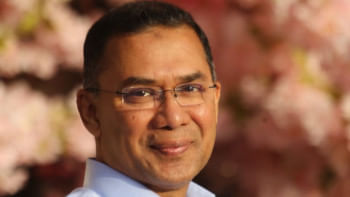Israel bombs ‘dozens of targets’ in Lebanon

Israel struck multiple targets in Lebanon yesterday, pressing Hezbollah with more attacks and saying it had killed yet another senior figure after it struck a huge blow by killing the Iran-backed group's leader Sayyed Hassan Nasrallah.
The Israeli military said the air force had "struck dozens of Hezbollah terror targets in Lebanon, including launchers that were aimed toward Israeli territory, structures in which weapons were stored and additional Hezbollah terrorist infrastructure".
- Diplomatic efforts for a truce still underway: Lebanon
- Israel launches attacks on Houthi targets in Yemen
- Over 1,000 people killed in Lebanon in past two weeks
The air strikes had killed Nabil Kaouk, a prominent Hezbollah leader, the latest in a string of Israeli strikes that have targeted many of the group's most senior figures. Hezbollah has not yet commented on Kaouk's fate but its supporters have been posting mourning messages for him since Saturday.
Israel's military also conducted a 'precise strike' in Beirut's Dahiyeh area, as a loud blast was heard and a plume of smoke rose from the city's southern suburbs.
Separately, Israeli air force launched attacks on several Houthi rebel targets in Yemen using dozens of aircraft. The Israeli navy earlier said it had intercepted a projectile approaching Israel from the area of the Red Sea and another eight projectiles coming from Lebanon had fallen in open areas.
Hezbollah said it would keep fighting Israel and has continued to fire new fusillades of rockets into Israel yesterday.
More than 1,000 people in Lebanon have been killed and more than 6,000 wounded as a result of the Israeli attacks in the past two weeks. Fourteen medics have been killed over the course of two days of Israeli strikes.
Lebanon's Prime Minister Najib Mikati yesterday said his country could be witnessing its largest wave of displacement ever amid intense Israeli air strikes. Lebanon's army warned Lebanese against actions that would disturb public order.
In Beirut, some displaced families spent the night on the benches at Zaitunay Bay, a string of restaurants and cafes on Beirut's waterfront. Yesterday morning, families with nothing more than a duffle bag of clothes had rolled out mats to sleep on and made tea for themselves.
Lebanon's information minister said during a cabinet meeting yesterday that diplomatic efforts for a ceasefire were still underway.
Iran's Foreign Minister Abbas Araqchi said that the killing by Israel of an Islamic Revolutionary Guard Corps (IRGC) deputy commander in Beirut was a "horrible crime" that would not go unanswered.
The escalation has increased fears the conflict could spin out of control, potentially drawing in Iran as well as the United States, Israel's closest ally.
White House national security spokesperson John Kirby said yesterday that Israel will not be able to safely get people back into their homes in the north of the country by waging an all-out war with Hezbollah or Iran.
The United States is watching to see what Hezbollah does to try to fill its leadership vacuum "and is continuing to talk to the Israelis about what the right next steps are", he said.

 For all latest news, follow The Daily Star's Google News channel.
For all latest news, follow The Daily Star's Google News channel. 



Comments